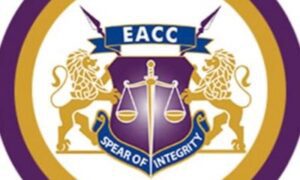A Nairobi City Water and Sewerage Company (NCWSC) employee has been fined Ksh 8.5 million after being found guilty of using a forged Kenya Certificate of Secondary Education (KCSE) certificate to secure employment over a decade ago.
The Milimani Anti-Corruption Court convicted Felix Ojwang Balamu following a detailed investigation by the Ethics and Anti-Corruption Commission (EACC). The court found that Balamu fraudulently used a fake KCSE certificate purporting it to be genuine from the Kenya National Examinations Council (KNEC) to obtain employment in 2011.
According to court documents, Balamu was convicted on multiple counts, including fraudulent acquisition of public property, deceiving a principal, and presenting a forged document. The investigations revealed that he unlawfully earned a total of Ksh 8.24 million in salaries during his employment with NCWSC, which was obtained through deceit.
Delivering the ruling on October 10, 2025, Hon. Selesa Okore ordered Balamu to pay the equivalent amount of his illegally earned salary plus additional penalties, bringing the total fine to Ksh 8,543,562. In default, he will serve four years in prison.
The court emphasized that individuals who use forged documents to obtain public employment deny qualified Kenyans genuine opportunities and contribute to the erosion of integrity within public service institutions.
In a statement following the judgment, the EACC lauded the court’s decision, describing it as a strong message to public officers who secure jobs or promotions using fake academic qualifications.
“This ruling reaffirms the Commission’s commitment to protecting public resources and promoting integrity in all public institutions,” the EACC said.
The anti-graft body has been conducting a nationwide crackdown on individuals who used forged academic certificates to enter public service. Dozens of civil servants, teachers, and county officials are currently under investigation for similar offenses.
The EACC has also urged public institutions to verify the authenticity of academic documents before hiring or promoting employees to prevent further misuse of public resources.
This case underscores the government’s ongoing efforts to uphold accountability and transparency within the public sector. It also serves as a warning to those attempting to falsify their academic qualifications for personal gain.
As Kenya continues its fight against corruption, such judgments demonstrate that no public officer is above the law, and fraudulent behavior will be met with the full force of justice.


























